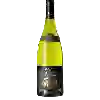
Winery Jacques SalleSilice Quincy
This wine generally goes well with vegetarian, rich fish (salmon, tuna etc) or shellfish.
Food and wine pairings with Silice Quincy
Pairings that work perfectly with Silice Quincy
Original food and wine pairings with Silice Quincy
The Silice Quincy of Winery Jacques Salle matches generally quite well with dishes of pork, shellfish or spicy food such as recipes of country-style snow peas, shrimp and cherry tomato quiche or cicadas at the chib.
Details and technical informations about Winery Jacques Salle's Silice Quincy.
Discover the grape variety: Scheurebe
German grape variety obtained in 1916 by Georg Shere (1879/1949). It was given until then as coming from a cross between Riesling and Sylvaner, but genetic tests have shown that its father is the Bouquettraube (Bukettrebe), and it is closely related to the Kerner. The Scheurebe can be found in Austria, Germany, Belgium, Switzerland, the Netherlands, Italy, Slovenia, Great Britain, the United States (California, Virginia, ...), Canada (Ontario, British Columbia, ...), ... practically unknown in France.
Informations about the Winery Jacques Salle
The Winery Jacques Salle is one of of the world's greatest estates. It offers 3 wines for sale in the of Quincy to come and discover on site or to buy online.
The wine region of Quincy
The wine region of Quincy is located in the region of Centre Loire of Loire Valley of France. Wineries and vineyards like the Domaine Henri Bourgeois or the Les Domaines Tatin produce mainly wines white, red and pink. The most planted grape varieties in the region of Quincy are Chenin blanc, Cabernet franc and Pinot noir, they are then used in wines in blends or as a single variety. On the nose of Quincy often reveals types of flavors of grapefruit, kiwi or stone and sometimes also flavors of oak, grass or apricot.
The wine region of Loire Valley
The Loire Valley is a key wine region in western France. It follows the course of the Loire River on its Long journey through the heart of France, from the inland hills of the Auvergne to the plains of the French Atlantic coast near Nantes (Muscadet country). Important in terms of quantity and quality, the region produces large quantities (about 4 million h/l each year) of everyday wines, as well as some of France's greatest wines. Diversity is another of the region's major assets; the styles of wine produced here range from the light, tangy Muscadet to the Sweet, honeyed Bonnezeaux, the Sparkling whites of Vouvray and the juicy, Tannic reds of Chinon and Saumur.
The word of the wine: Farm
Wine dominated by a strong acidity and/or biting tannins. In this case, the components of the wine need to melt, i.e. to harmonize during the maturation in the cellar.







